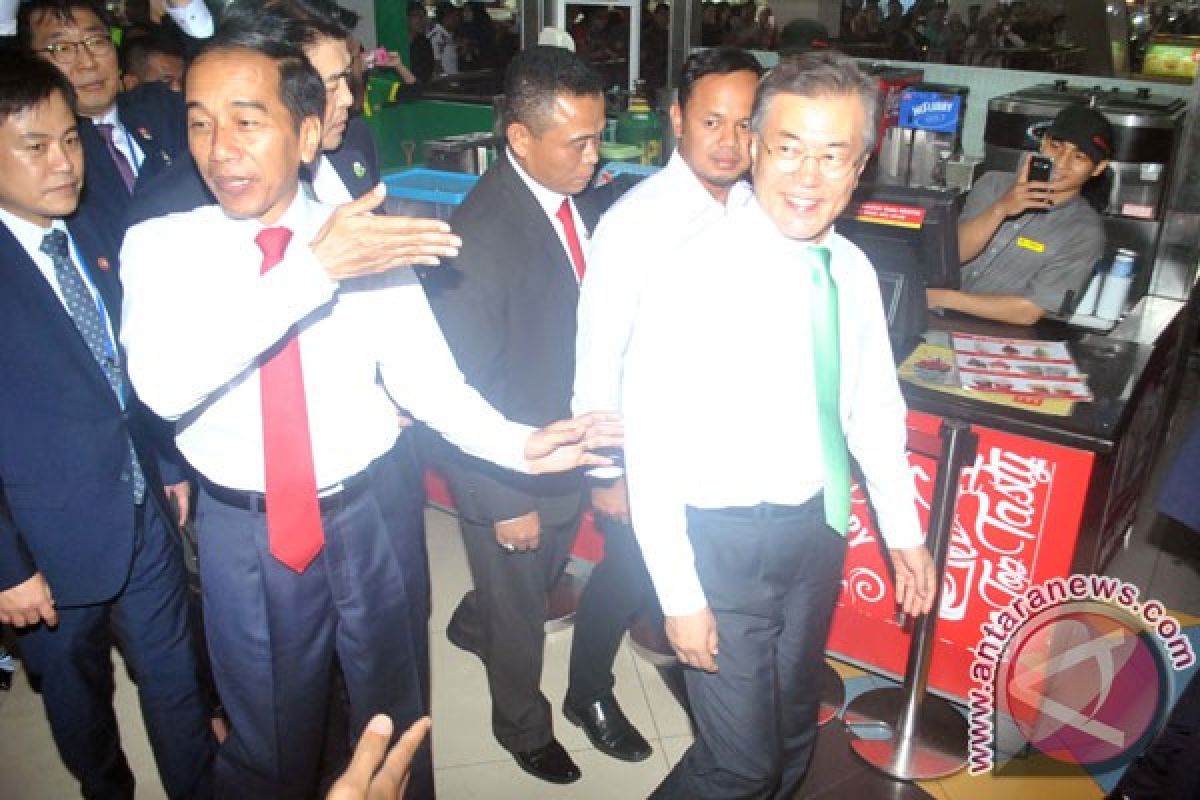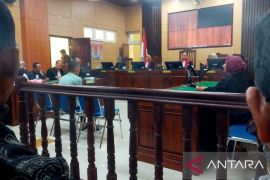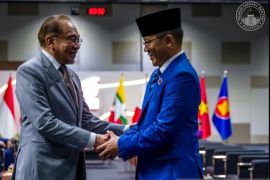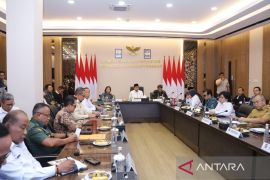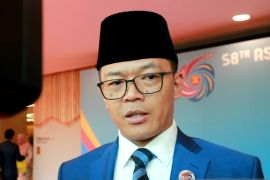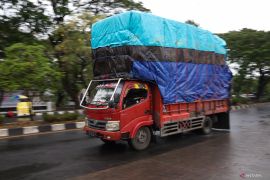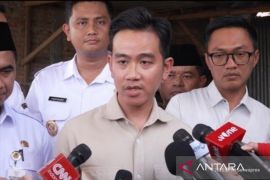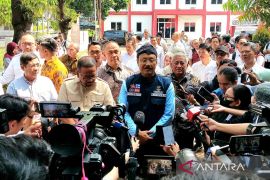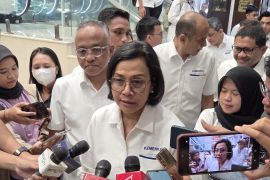The policy drew favorable reaction in the country, but a lot of things need to be set right in bringing the initiative to reality, such as improvement in the quality of human resources.
Deputy Chairman of the Commission VII of the House of Representatives, Ridwan Hisjam, emphasized the importance of human resource development in facing the fourth industrial revolution.
Indonesia should start seeking cooperation with industrialists and foreign countries to improve the quality of vocational schools and to speed up the transfer of knowledge, Hisjam noted.
He stated that Industry 4.0 needs reform in the system of cooperation with various agencies, including foreign countries, especially in innovation.
For that purpose, high educational institutes are required to initiate adjustment to changes and accommodate various demands coming with the change.
He also underlined the importance of socializing development of technology notably related to "online" world.
Trade Minister Enggartiasto Lukita spoke about Industry 4.0 at the ASEAN Economic Community Council (AECC) during the ASEAN summit meeting in Singapore last week.
Lukita remarked that the fourth Industrial Revolution would bring about a big change because of its speed and its impact on various systems. ASEAN, therefore, has to adjust to the development; otherwise, it would be left behind.
Earlier, at the Regional Conference on Industrial Development (RCID) in Bali on Nov 8, the Indonesian government sought to team up with Asia Pacific rim nations to accelerate Industry 4.0.
At that meeting, Industry Minister Airlangga Hartarto explained that transformation through Industry 4 would create a nation with a new model of business in manufacturing industry with high competitiveness and added value.
Hartarto elaborated that integration in competitiveness, technology, information, and communication is needed in order to change a competitive nation in the era of Industry 4.0.
Such integration could lead to more efficient process of industrialization to create products with higher quality, he added.
Focus on Human Resources
The Indonesian government, during various occasions, has said it would begin to concentrate more on improvement of the quality of the country`s human resources, through education and vocational training, as part of its policy to create fairer economic development and enter the fourth industrial revolution.
Deputy for Coordination of Creative Economy, Entrepreneurship and Competitiveness of Cooperatives, Small and Medium Enterprises at the office of the Coordination Minister for Economy, Rudy Salahuddin, revealed that Industry 4.0 needs high quality human resources for the business sector and industry.
Salahduddin also emphasized the importance of education and vocational training and the steps taken by the government in drafting a new roadmap for education and vocational training for 2017-2025.
In the roadmap, there are four focuses of policy.
First is to meet labor requirement in six priority sectors, namely agribusiness, tourism, e-commerce, manufacturing industry, health care, and exports of labor.
Second is to meet labor requirement of the governments` priority program such as infrastructure program, which includes national strategic projects and nonstrategic projects, even distribution program, and zone expansion program.
Third is focus on vocational training.
Fourth is improvement of the fundamentals of education and vocational training.
Rudy pointed out that improvement of fundamentals is absolutely necessary in education and vocational training as improvement has to begin from educational institute and better coordination.
Therefore, it is natural that vocational education has to be improved to enter the transitional period from Industry 3.0 to Industry 4.0. by preparing quality human resources, he explained.
Expert staff of the Industry Minister in finance and industrial structure Soerjono stated that vocational education system, amid the global competition, could function as a shortcut or a breakthrough from formal education.
Improving curriculum
Meanwhile, Director of Productivity Development at the Director of Training and Productivity of the Manpower Affairs Ministry, M Zuhri Bahri, noted that vocational education is currently being prepared to produce human resources with high quality as in advanced nations.
Lawmaker from the Commission X of the House of Representatives, Esti Wijayati, remarked that educational curriculum in the country had to be prepared well, in order to be ready to enter the fourth industrial revolution.
Wijayanti, in a working meeting with Minister of Research and Technology and High Educational Institution Mohamad Nasir, revealed that the Research and Technology and High Educational Institution should take comprehensive steps to face Industry 4.0.
She pointed out that 88 percent of jobless people are university graduates, adding that "this needs serious addressing."
She explained that in the future, university graduates should be able to compete well in the era of Industry 4.0.
Earlier, Central Java Governor Ganjar Pranowo, while addressing a regional meeting on development plan in Yogyakarta, suggested a change in the educational curriculum, in order to be ready to enter the fourth industrial revolution.
Pranowo stated that the current increase in the capacity of human resources is a crucial point for Indonesia. Therefore, there should be acceleration in the efforts to improve the quality of the country`s human resources with improved curriculum of education.
The governor called on the central government and regional administrations to take necessary steps on the political decision to be taken, adding that the change in curriculum should be made immediately.
Editing by BUstanuddin
Reporter: M Razi/A Saragih
Editor: Fardah Assegaf
Copyright © ANTARA 2018
